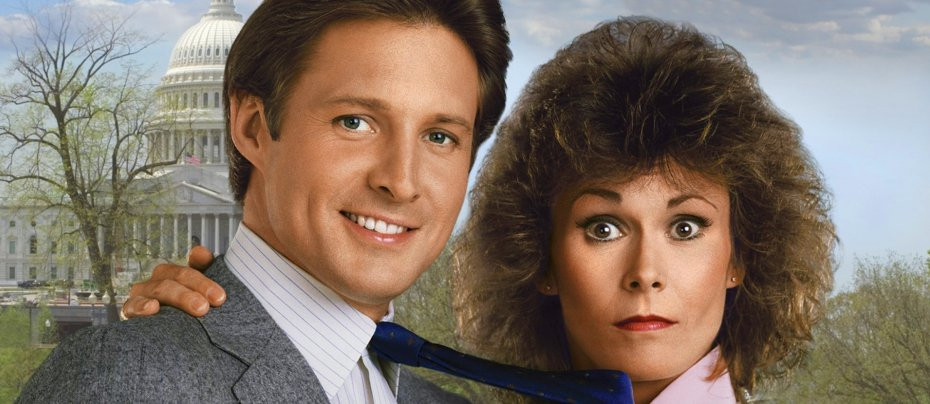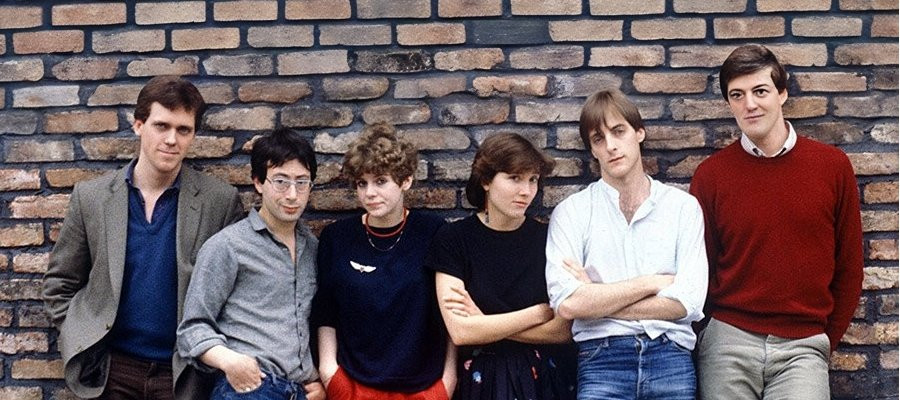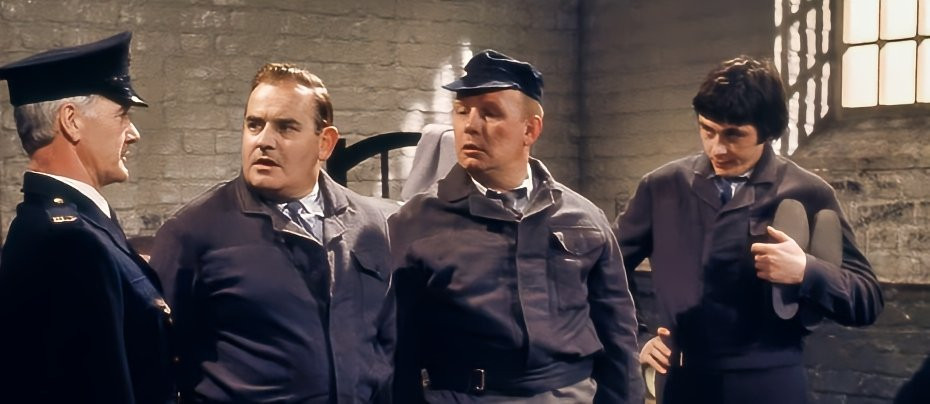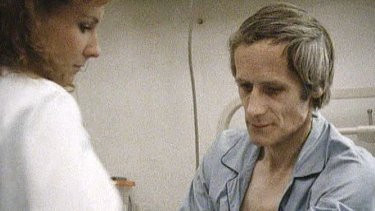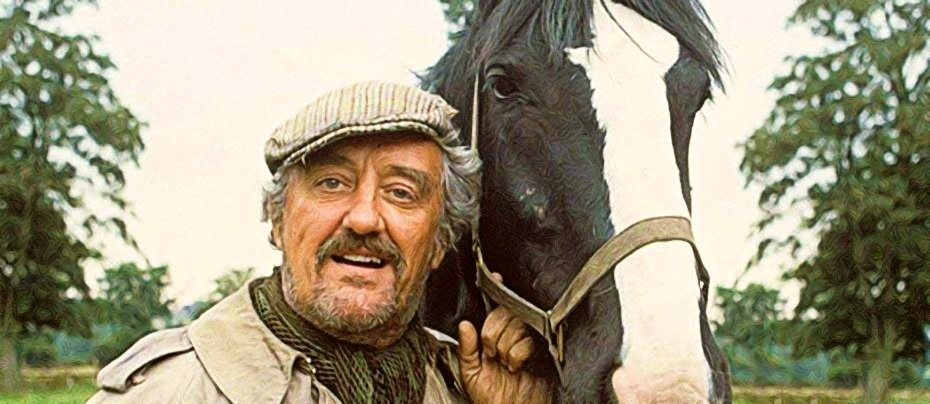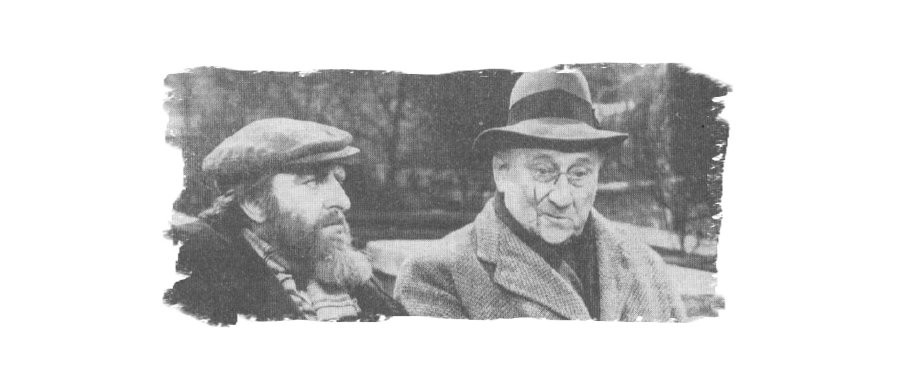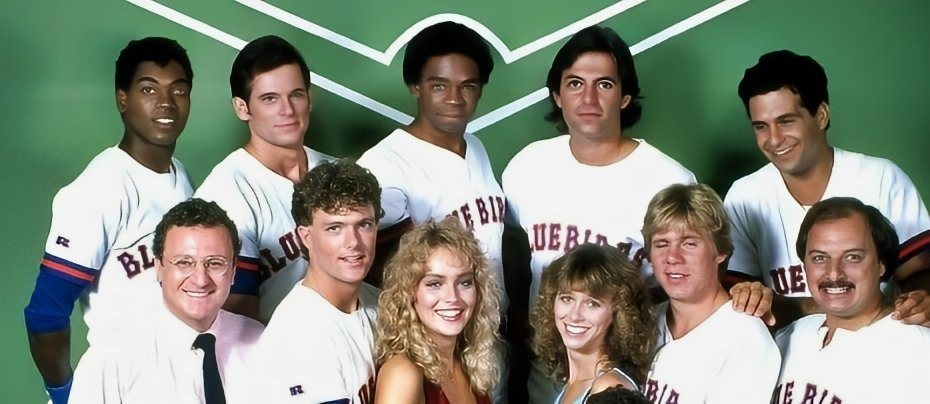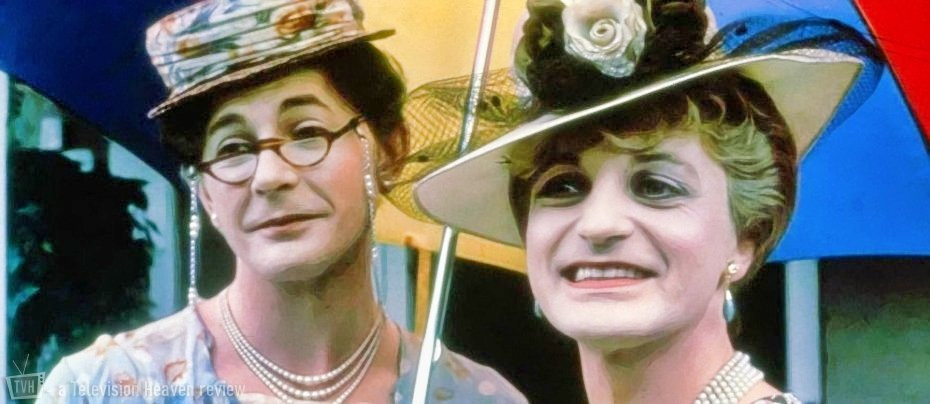
Dear Ladies
1983 - United KingdomThe adventures of the pair carry a Vicar of Dibley feel
Dear Ladies review by Brian Slade
When recalling showbusiness acts in the years gone by of men dressing as women, people instinctively think of the Queen of Niceness, Dame Edna Everage, her alter ego Barry Humphries being the man behind the flamboyant glasses and outfits. But in 1983, along with writer Gyles Brandreth, Patrick Fyffe and George Logan gave us three seasons of comedy on the BBC of Dear Ladies in which they brought Dr Evadne Hinge and Dame Hilda Bracket’s lives to our screens.
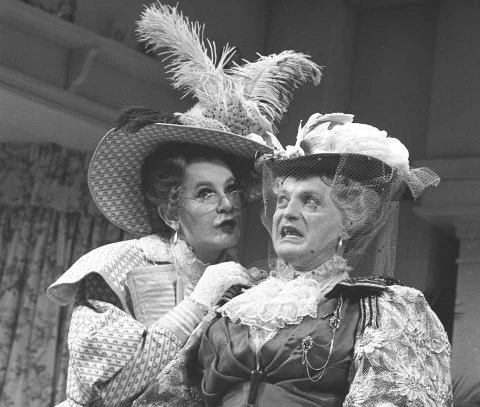
The arrival of Dear Ladies had the distinct advantage that over the preceding decade, Hinge and Bracket had been performing on stage, radio and in guest television spots, always in character and continually expanding on the backstory of their fictional lives – two retired operatic performers now growing older in semi-retirement in a country home they share in the fictional village of Stackton Tressel. Dear Ladies gave the writing trio the chance to finally bring that life to the small screen.
Dame Hilda is by far the more flamboyant of the pair. A wantonly extravagant woman, she drives a vintage car, dabbles in gambling and is always on hand with a reminiscence of their heady days on the provincial opera stage. Her recollections are not always accurate but she is very much the dominant force of the act, being the falsetto singer, and never passes up an opportunity to perform in some manner.
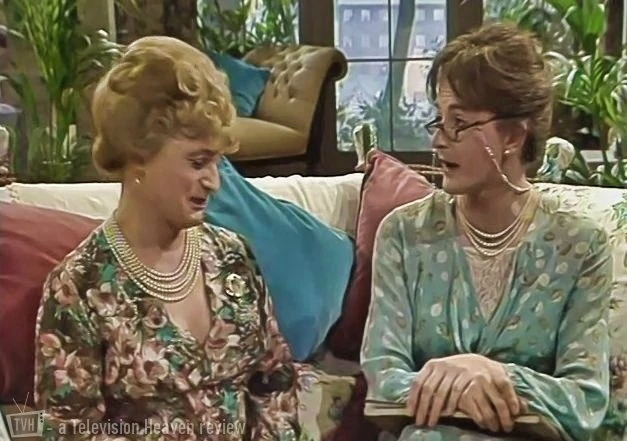
Alongside Dame Hilda is her long-suffering stage partner Dr Evadne. A very different character, she is a more practical and stringent person, councillor and soon to be mayor of Stackton Tressel. Within the stage act, she is the piano accompanist, sometimes weighing in on the vocals, but more often than not her main role is to keep Dame Hilda’s extravagance in check, usually with a snide correction of an anecdote, or a frown over the top of her half-moon spectacles.
In their lives at Utopia Ltd, the name of their country house, the pair are balancing an idyllic semi-retirement with village life. Dame Hilda is, of course, always keen to bring her years of showbusiness to the fore in everything she does, while Dr Evadne would prefer to play the church organ and balance the books to keep the home from crumbling around her. Nothing demonstrates the differences more than the site of Dame Hilda driving around the country lanes recklessly in her open-top Rolls Royce, while Dr Evadne more modestly works her way round the village on her tricycle, with its rather pointless trailer shedding its load along its journey.
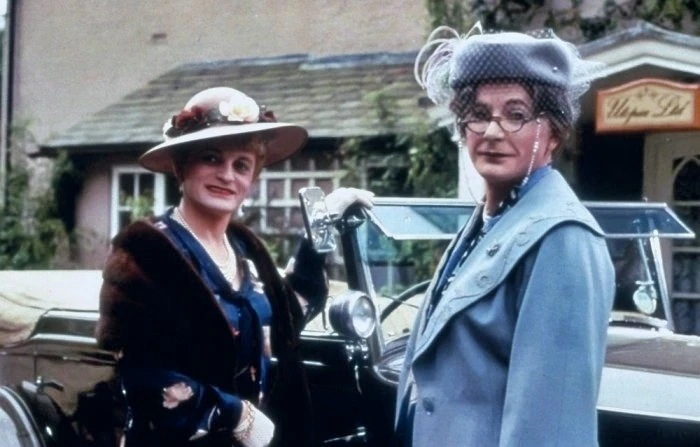
They may have enjoyed a stage career together, but life for the ladies includes a fair amount of rivalry. They occupy separate sections of the house, garden and even have their own sides of the sofa and rug. Initially the pair employ the services of a rather hapless housekeeper, Maude, who we never see in the show and who swiftly disappears. The ladies are struggling to balance household bills due to the large maintenance costs of their home, so are forced to take such drastic actions as turning their rose garden into a vegetable patch and for Dame Hilda to start giving singing lessons.
For three seasons we see the ladies bundling their way through village life. Their presence invariably brings mischief and chaos, particularly on Dame Hilda’s part, striking fear into the local villagers. New-fangled things such as self-service garages and cash machines are far too technical for them to master, but then so are such simple things are a game of bows at the village green or buying a new hat.
The adventures of the pair carry a Vicar of Dibley feel, centred as they are on the insular feel of Stackton Tressel. The ladies throw themselves into everything, including performing in A Midsummer Night’s Dream, interfering in the life of the local vicar and hijacking the local hospital radio service. The village characters are, as one would imagine, less of a focal point, relying more on the ladies’ descriptions of them than their actual presence.
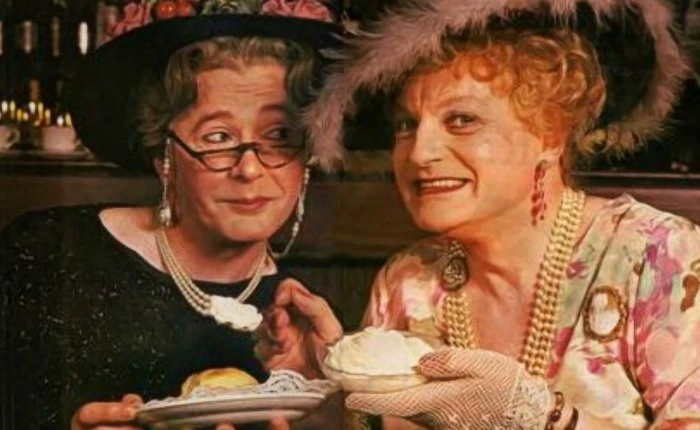
The comedy is much as the Hinge and Bracket stage act, Dame Hilda with the greater presence, Dr Evadne with the swift putdowns to keep her in check, and there are inevitably double-entendres to match, such as referencing a disgraced military acquaintance who was caught playing with his privates (cards!) and ‘the butcher hasn’t put his meat up once in a quarter of a century’). The pair are at their best when exchanging side-of-the-mouth barbs at one another’s expense, such as talking about the beauty counter in the department store, when Dame Hilda snidely snaps, ‘I wouldn’t waste your time, dear.’
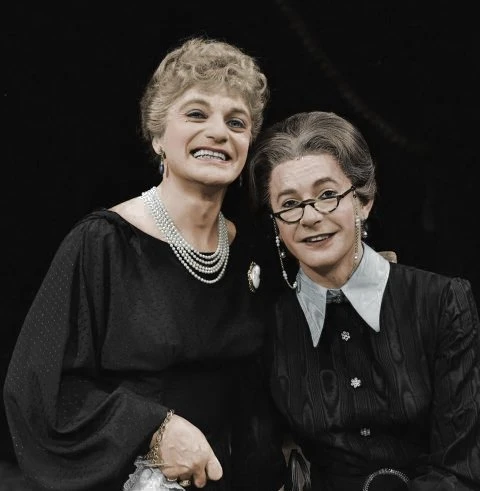
The joy of Dear Ladies, just as was the case with Hinge and Bracket’s other work, is that they are so eminently believable in their roles that we just see them as more Hyacinth Bucket characters than being men in drag. Aloof to the opinions of others and permanently looking to involve themselves in high-society elements of the village, the pair are full of the airs and graces an operatic duet would need, lowering their standards only behind closed doors when doing such things as storing their goldfish in a bucket under the sink or Dame Hilda cleaning her glasses with a deep-throated ‘hurgh’ as she casts warm air on them for wiping.
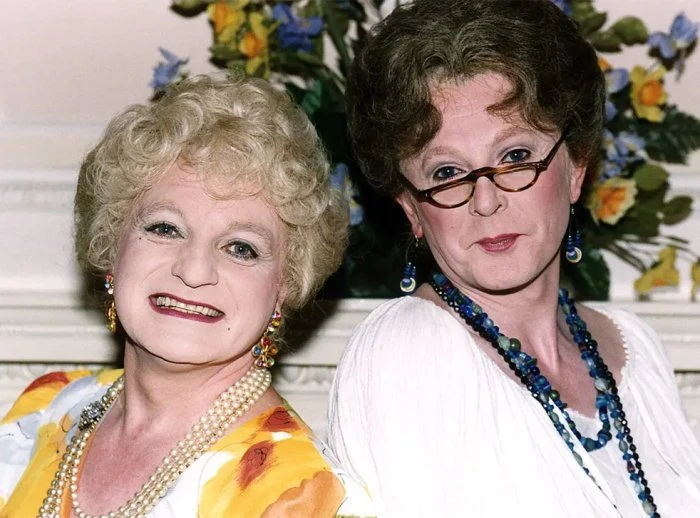
The end credits only include Fyffe and Logan’s names when referring the show’s theme song - the starring roles are credited solely to Dame Hilda Bracket and Dr Evadne Hinge and that is very much how the pair were, at least with Fyffe. For Logan, Dr Evadne was a character he played on stage. For Fyffe, Dame Hilda existed every bit as much as he did and the fact that the two only ever publicised their act in character continued to sustain that world in which Dame Hilda lived. Dear Ladies was a three series run on the BBC in stark contrast to the alternative comedy that was ripping up the comedy rulebook on television, and is gently nostalgic viewing now of a hugely underrated act at the peak of their powers.
Seen this show? How do you rate it?
Seen this show? How do you rate it?
Published on June 6th, 2022. Written by Brian Slade for Television Heaven.


